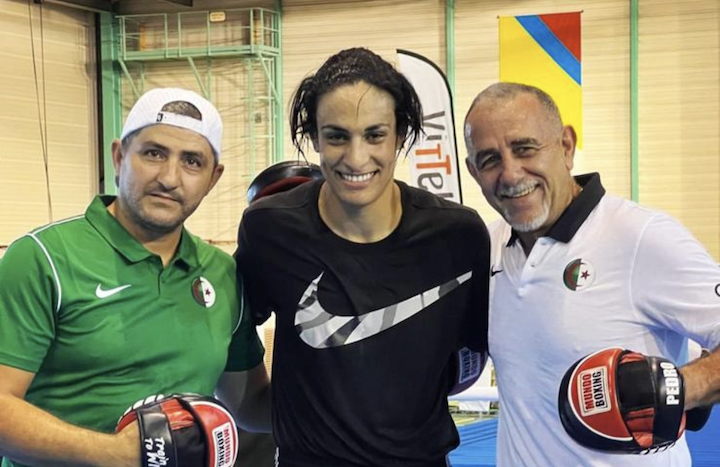Forty-six seconds into the first round of their women’s boxing match at the 2024 Paris Olympics on Thursday, Italy’s Angela Carini abandoned her fight against Algeria’s Imane Khelif.
At issue, it seemed, was Khelif’s gender, which, along with the classification of a handful of other Olympic athletes – particularly boxers – has recently driven a heated debate over fairness and safety in athletic competition.
After an initial exchange of punches, Carini ended Thursday’s match, reportedly feeling “intense pain” in her nose. But in the aftermath, Carini made a point of saying she was not making a political statement or passing judgment.
Accusations and assumptions about Khelif’s gender status, as well as recent rulings against her participation in international competition, have led many to question why she was included in the Paris Olympics at all. It’s important to note that, per one report, Khelif has a disorder of sex development (DSD), which means that while she was born a woman, she may nevertheless have XY chromosomes and elevated testosterone levels.
This may be confusing to those who were taught that women have two X chromosomes while men have an X and a Y chromosome. But according to medical experts there are indeed cases of women who have XY chromosomes who are able to give birth.
Khelif is neither trans (as some have misidentified), nor has she seemed to make any efforts to conceal her condition.
She had been cleared to compete for the rest of her career, including in the 2020 Olympics, when she lost to eventual gold medalist Kellie Harrington of Ireland. But last March both Khelif and Taiwan’s Lin Yu-ting were barred from the 2023 World Championships – an event overseen by the International Boxing Association (IBA). She appealed the decision at the Court of Arbitration for Sport but later withdrew, making IBA’s ruling final. It should be noted that the IBA has refused to answer questions about its testing and ruling.
It should also be noted that before the Khelif and Yu-ting rulings, the IBA was suspended back in 2019 by the International Olympic Committee (IOC) amid organizational failures in “governance, finance and ethical issues”. And within months of the disqualification of Khelif and Yu-ting from the worlds, the IOC stripped the IBA of its recognition altogether. That was likely unrelated to this matter, but rather due to concerns over how the IBA operates in general.
The International Olympic Committee, following different rules than those of the IBA, cleared Khelif to compete in the 2024 Paris Olympics, confirming her compliance with all eligibility and medical standards without detailing specifics. The IOC emphasized that Khelif’s gender identity was not a transgender issue.
Khelif will next face Hungary’s Anna Luca Hamori, who took no issue with her opponent’s gender classification and isn’t interested in the controversy.
“I don't care about the stories or what is going on on social media right now," Hamori told Reuters. “I just want to stay focused on myself.”
Jason Langendorf is the former Boxing Editor of ESPN.com, has contributed to Ringside Seat and the Queensberry Rules, and has written about boxing for Vice, The Guardian, Chicago Sun-Times and other publications. A member of the Boxing Writers Association of America, he can be followed on X and LinkedIn, and emailed at dorf2112@hotmail.com.


ADD COMMENT VIEW COMMENTS (50)